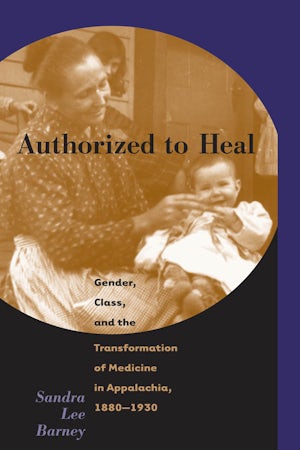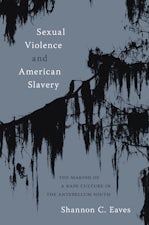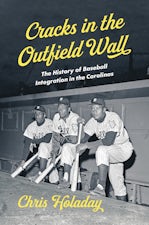Authorized to Heal
Gender, Class, and the Transformation of Medicine in Appalachia, 1880-1930
By Sandra Lee Barney
240 pp., 6 x 9, 7 illus., 9 tables, 1 map, notes, bibl., index
-
Paperback ISBN: 978-0-8078-4834-0
Published: March 2000 -
E-book EPUB ISBN: 978-0-8078-6054-0
Published: July 2003 -
E-book PDF ISBN: 979-8-8908-6780-3
Published: July 2003
Buy this Book
- Paperback $42.50
- E-Book $29.99
Barney explores both the differences that divided women in the reform effort and the common ground that connected them to one another and to the male physicians who profited from their voluntary activity. Held together at first by a shared goal of improving the public welfare, the coalition between women volunteers and medical professionals began to fracture when the reform agendas of women's groups challenged physicians' sovereignty over the form of health care delivery. By examining the professionalization of male medical practitioners, the gendered nature of the campaign to promote their authority, and their displacement of community healers, especially female midwives, Barney uncovers some of the tensions that evolved within Appalachian society as the region was fundamentally reshaped during the era of industrial development.
About the Author
Sandra Lee Barney is associate professor of history at Lock Haven University in Pennsylvania.
For more information about Sandra Lee Barney, visit
the
Author
Page.
Reviews
"The sophisticated analysis, clear and direct prose style, organization, and brevity make the paperbound version of Authorized to Heal ideal for upper-level undergraduate courses in southern history, women's history, and the history of medicine and public health. . . . Authorized to Heal is one of the finest monographs in the past decade to combine women's and southern history."--Journal of Southern History
"[A] rich and graceful volume that combines the historical literature of women, medicine, and Appalachian history. . . . Barney has filled an important void in Appalachian history and at the same time helps to demonstrate that Appalachian history is American history."--American Historical Review
"Barney does an admirable and much-overdue job of debunking some of the persistent myths about medicine in the hardscrabble communities that constitute rural Appalachia. . . . Authorized to Heal rests well within the extant literature on the subject of class and gender in medical care, but does so with a unique regional focus that is founded on substantive and cogent research. . . . A valuable addition to the historical literature on rural healthcare delivery in the United States."--Bulletin of History of Medicine
"More than simply an examination of medicine, this book adds to our understanding of gender and class issues and their relationship to economic change during the Progressive Era. . . . It is a well-written regional study that adds to the burgeoning literature on Appalachia. It also improves our understanding of middle-class female reform by examining that phenomenon in an area far removed from the usual urban context. . . . Barney has given us a gem of a book--one that addresses both local concerns and wider issues."--Journal of American History
"Authorized to Heal is a rich and eye-opening account of the transformation of medicine in late-nineteenth- and early-twentieth-century Appalachia. . . . It is a remarkably nuanced story of class politics in local communities. . . . Barney's finely grained analysis of medical care is an excellent addition to our knowledge of how mountaineers both solicited and resisted what came billed as the modern world, and the financial and political trappings that accompanied it."--Journal of Appalachian Studies
"Authorized to Heal makes a significant contribution to women's and medical history and advances our historical understanding of a region and time period when the impact of gender, class, and medicine was so conflicted and so profound."--North Carolina Historical Review




